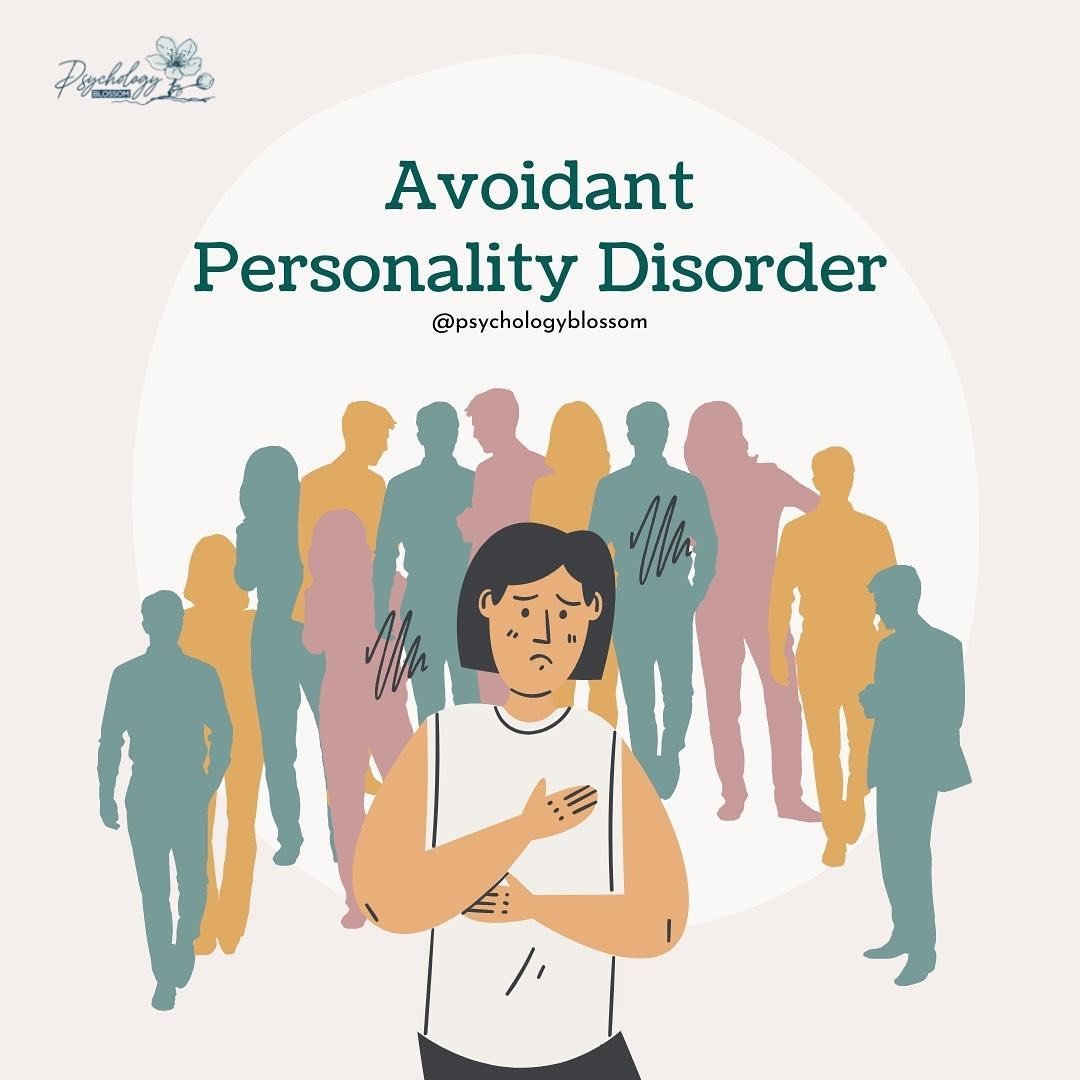Avoidant Personality Disorder (AvPD): Causes, Symptoms, and Treatment
Have you ever felt reluctant to partake in new activities and meeting strangers?
That you are inadequate and inferior to others?
Or that people are secretly criticising and making fun of you?
If you have answered yes to any of the above, you may have Avoidant Personality Disorder.
What is Avoidant Personality Disorder?
Avoidant Personality Disorder (AvPD) is a mental health condition marked by feelings of extreme social inhibition, inadequacy, and sensitivity to negative criticism or rejection. Although individuals with this disorder often want to connect with others, their intense fear of disapproval and rejection prevents them from forming relationships. This condition can severely affect everyday life, impacting work, friendships, and family dynamics.
Avoidant Personality Disorder often overlaps with Social Anxiety Disorder, but there are important distinctions. While social anxiety is often linked to specific situations (like public speaking), AvPD tends to cause anxiety across all areas of life, leading to deeper and more consistent feelings of low self-worth and withdrawal. It is also common for AvPD and social anxiety to occur simultaneously.
Causes of Avoidant Personality Disorder
The exact cause is unknown, but both genetics and environment play a role. Some research suggests that shy or withdrawn children who never outgrow these traits may be at greater risk. Environmental factors—such as repeated criticism, emotional abuse, or a lack of affection during childhood—can contribute to the development of the disorder. Rejection by peers or bullying in early years also increases vulnerability.
Brain chemistry, personality traits, and family history of mental health conditions may further influence the likelihood of developing AvPD. Like many personality disorders, AvPD results from a combination of inherited and learned factors, rather than a single cause.
Symptoms of Avoidant Personality Disorder
People with AvPD are usually aware of their discomfort in social situations and may even see themselves as socially awkward or inferior. Despite this awareness, they often interpret even neutral feedback as criticism or humiliation. Core traits of AvPD include:
- Oversensitivity to rejection or criticism.
- Shyness, awkwardness, and self-consciousness in social situations.
- Tendency to exaggerate potential problems and risks.
- Reluctance to try new activities or meet new people.
- Persistent poor self-image and feelings of inadequacy.
- Self-isolation and withdrawal from relationships.
- Conflict avoidance, often becoming “people-pleasers.”
- Difficulty making decisions due to fear of mistakes.
- Lack of close friendships or meaningful social networks.
These behaviours may feel protective in the short term but can reinforce loneliness and depression over time, creating a cycle that is hard to break without treatment.
Treatment for Avoidant Personality Disorder
Treatment can be challenging because AvPD involves deeply rooted patterns of thinking and behaviour. However, many individuals are motivated to seek therapy because the distress from loneliness and isolation becomes overwhelming. Treatment is often long-term but can lead to meaningful improvements in relationships and quality of life.
✽ Psychotherapy
The main approach for AvPD is psychotherapy. It focuses on changing thinking patterns (cognitive therapy) and behaviours (behavioural therapy). Therapy aims to help clients overcome fears, build healthier self-esteem, and improve their ability to handle social situations. Over time, this can reduce avoidance and increase confidence in forming relationships.
Common therapeutic approaches include Cognitive Behavioural Therapy (CBT), Psychodynamic Therapy, and Schema Therapy. Group therapy and social skills training can also be highly beneficial, offering safe environments to practise interaction.
✽ Medication
There are currently no medications approved specifically for AvPD. However, medications may be prescribed to address related conditions such as depression or anxiety. Antidepressants and anti-anxiety drugs can reduce symptoms that make avoidance worse. Medications work best when combined with psychotherapy.
✽ Family and Social Support
Treatment outcomes improve when family members are informed and supportive. Involving loved ones in therapy can help reduce stigma, encourage participation, and build understanding. Without intervention, AvPD can lead to long-term isolation, difficulties at work, and greater risks of depression or substance abuse.
Watch the video attached for a summary of Avoidant Personality Disorder.
We recommend This Video to those who want to learn more about Avoidant Personality Disorder (AvPD).
